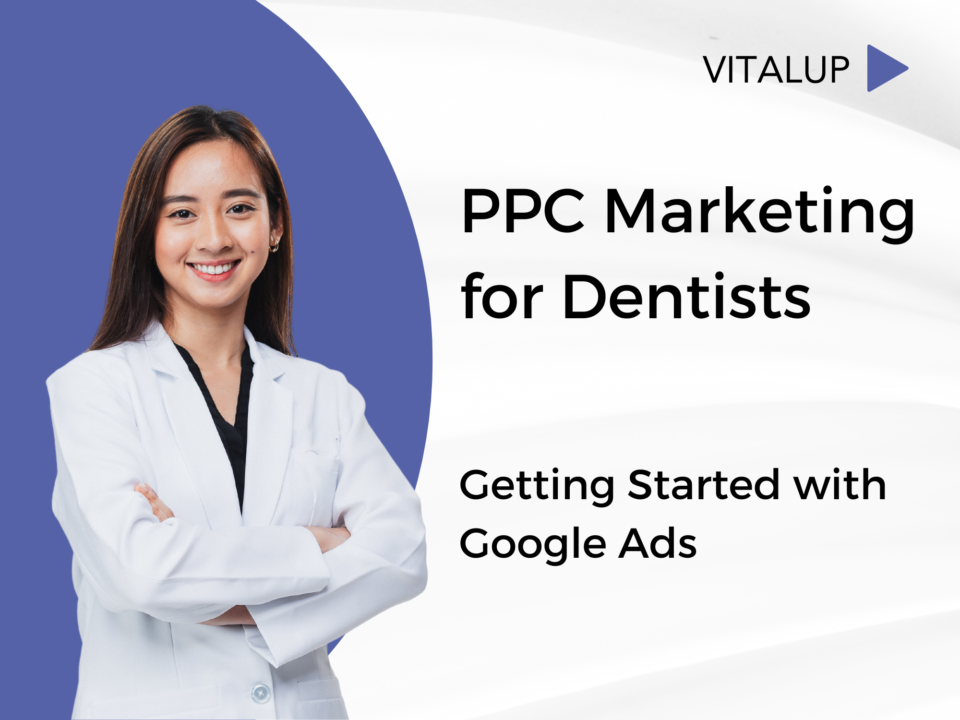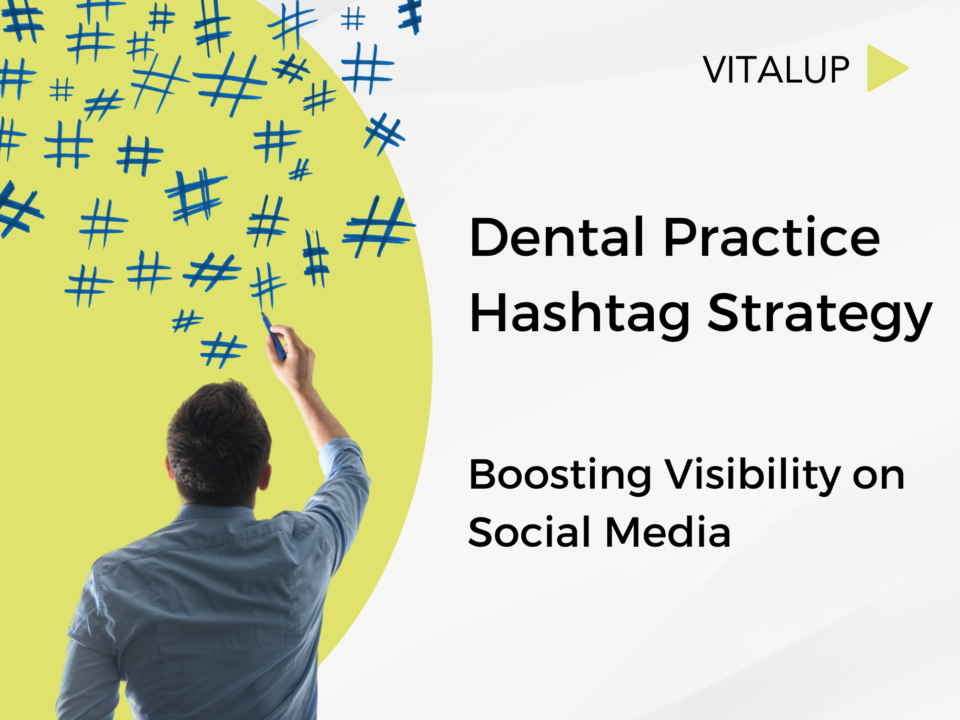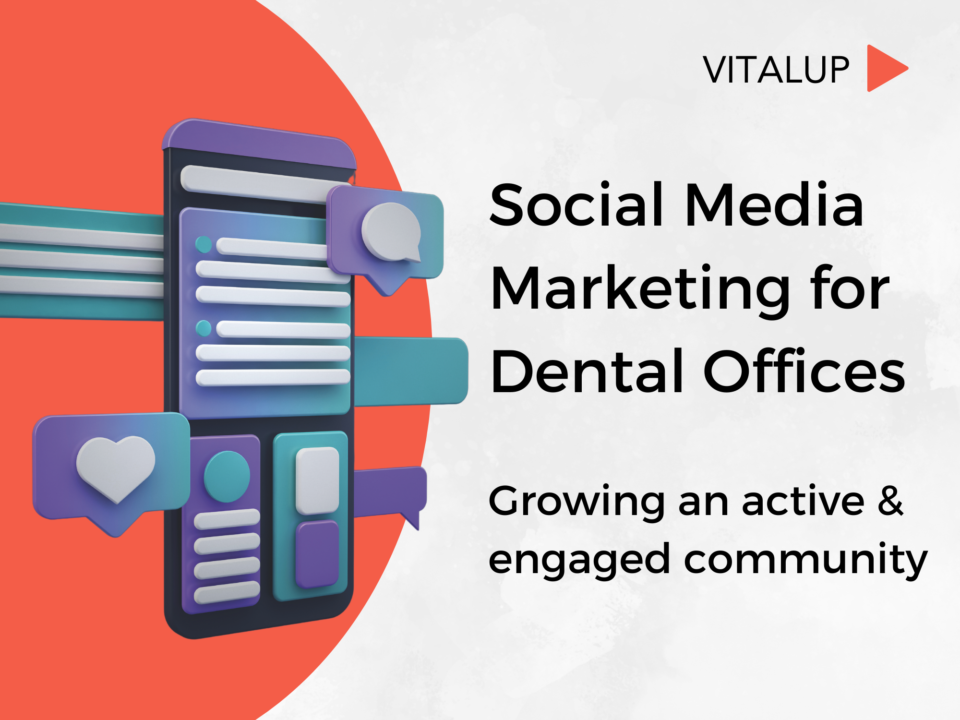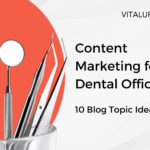
Content Marketing Ideas for Dental Blogs
September 20, 2024
The Role of Online Reviews in Dental Marketing: Strategies to Manage and Leverage Patient Feedback Effectively
September 26, 2024
The healthcare industry is undergoing a profound digital revolution. No longer confined to traditional advertising methods, healthcare providers, clinics, hospitals, and pharmaceutical companies are leveraging digital marketing to engage patients, improve care, and stay competitive in an ever-evolving market.
With patients increasingly turning to the internet for health information, it’s crucial for healthcare brands to have a strong digital presence. Digital marketing is not only about visibility—it’s about improving patient outcomes, building trust, and making healthcare more accessible.

Why Digital Marketing is Essential for Healthcare Practices
The modern patient is an informed one. Nearly 80% of consumers search for healthcare information online, whether they are researching symptoms, finding specialists, or reading reviews about hospitals and clinics. This shift means healthcare providers need to be where their patients are—online.
Key Reasons for the Shift:
- Patient-Centric Approach: Patients now expect seamless digital experiences—from finding information on medical conditions to booking appointments, accessing medical records, and handling payments online. A patient-centric approach allows healthcare providers to deliver information and services directly, improving accessibility and satisfaction.
- Increased Trust: An engaging and educational online presence helps build credibility. Patients trust healthcare brands that provide reliable, fact-checked information. They also rely on reviews of doctors and practices before making critical healthcare decisions. In today’s competitive environment, trust is a major factor that can make or break a healthcare provider.
- Growing Competition: With more private healthcare providers entering the market, digital marketing offers a way to differentiate, attract patients, and highlight the unique value propositions of each practice or healthcare facility.
Key Digital Marketing Strategies for Healthcare Providers
Content Marketing and SEO
Content is king in the healthcare industry, where patients are actively searching for trustworthy information. Well-researched blogs, guides, infographics, and videos on health topics, symptoms, or treatments not only provide value but also improve SEO rankings.
- Why It Works: Healthcare content that answers patient questions builds authority, improves organic search rankings, and drives traffic to your site. For instance, creating a blog post on “Symptoms of Seasonal Allergies” or “Post-Surgery Recovery Tips” is likely to attract patients searching for health advice.
- SEO Tip: Optimizing your website for medical keywords ensures that your content shows up when potential patients search for health-related queries like “best orthopedic surgeon near me” or “treatment for chronic back pain.” Long-tail keywords and local SEO strategies are particularly effective for targeting potential patients in specific regions or specialties.
- Enhancing Your Content: Interactive tools, such as symptom checkers, health calculators, or even live chat with a healthcare professional, can elevate patient engagement. Additionally, ensure that your content is written in simple language, free from medical jargon, to enhance readability and comprehension.
Paid Search and PPC Ads
Healthcare-related search terms, such as “urgent care near me,” are highly competitive and often come with high search intent. Paid search or Pay-Per-Click (PPC) ads allow you to place your healthcare practice at the top of Google’s search results even if your organic rankings aren’t there yet. This is especially useful for promoting specific services or local clinics.
- PPC in Healthcare: Use targeted PPC ads to attract patients searching for time-sensitive services, such as same-day appointments, emergency care, or specialized treatments. For example, bidding on keywords like “emergency dentist near me” can lead patients in urgent need directly to your website.
- Tip: Make sure that your landing pages are optimized to convert traffic from paid ads. When users click on a PPC ad, they should land on a page that directly answers their query, whether it’s booking an appointment, learning more about a service, or contacting a specialist.

Social Media Engagement
Social media platforms like Facebook, Instagram, and Twitter offer healthcare providers a direct line to engage patients, share health tips, promote services, and provide important updates. It also humanizes the healthcare experience by allowing providers to give a peek inside the practice.
- Tip: Posting success stories, behind-the-scenes content, and patient reviews encourages new and existing patients to engage with your brand. For example, a clinic could post patient testimonials explaining how a procedure transformed their life or highlight a “Meet the Team” series that introduces the doctors and nurses.
- Going Beyond Promotions: Use social media as a platform to educate. Share wellness tips, news about recent advancements in healthcare, or provide a Q&A session with a doctor. Creating health-related challenges, like a “30-day wellness challenge” or “Walk 10,000 steps a day,” can drive engagement while promoting healthier lifestyles.
Online Reviews and Reputation Management
Positive online reviews are critical to the success of a healthcare business. Patients often rely on testimonials and ratings to choose healthcare providers. Actively managing your online reputation on platforms like Google, Yelp, and healthcare-specific review sites (e.g., Healthgrades, ZocDoc, RateMDs) ensures that your practice maintains a positive image.
- Tip: Set up a review funnel to direct satisfied patients toward leaving a review, either through follow-up emails or text message reminders. Offering a simple, streamlined process can help boost your star rating and the number of reviews you receive—both of which are important ranking signals for search engines and a major deciding factor for new patients.
Email Marketing for Patient Retention
Email marketing remains a powerful tool to keep patients informed, engaged, and coming back. By sending out appointment reminders, newsletters, wellness tips, and promotional offers, healthcare providers can maintain relationships with current patients while nurturing potential leads.
- Examples of Effective Campaigns: Send reminders for annual check-ups or flu vaccinations, provide personalized health tips based on past visits, or promote special services such as wellness workshops or seasonal health packages.
- Patient Journey Automation: Email campaigns can be automated to guide patients through their healthcare journey—from booking their first appointment to following up on treatment or providing educational resources based on their medical history.
Emerging Channels in Healthcare Digital Marketing

Voice Search Optimization
Voice search technology, such as Google Assistant and Siri, is transforming the way patients search for healthcare services. With the rise of voice search, patients are more likely to ask questions like, “Where is the nearest urgent care?” or “What are the symptoms of diabetes?” rather than typing in traditional search queries.
- Tip: Ensure your website is optimized for conversational keywords and local SEO to capture voice search traffic. Simple, question-based content (“How can I lower blood pressure?”, “where is the nearest emergency room”) often works best for voice search queries.
Telemedicine Marketing
Telemedicine has gained significant traction, especially after the COVID-19 pandemic. Many patients now seek virtual consultations as an alternative to in-person visits. Marketing telemedicine services, including virtual appointments, allows providers to expand their patient base and cater to patients who prefer or need remote healthcare.
- Tip: Create educational campaigns highlighting the benefits of telemedicine, such as convenience, access to specialists, and reduced wait times. Incorporate this into your content marketing, social media ads, and email campaigns to promote these services.
The Role of Data in Healthcare Marketing
Digital marketing for healthcare is not just about visibility; it’s about personalization and improving patient outcomes. Data plays a crucial role in this.
- Personalized Campaigns: Targeted email campaigns or ads based on patients’ medical history, demographics, or past interactions with your content help drive better results. Personalization allows healthcare providers to recommend relevant services, provide timely health tips, or remind patients about routine care.
- Analytics for Performance Tracking: Data analytics enables healthcare providers to track key metrics such as website traffic, patient inquiries, and the effectiveness of marketing campaigns. Using tools like Google Analytics, healthcare providers can refine their marketing strategies to focus on what’s working and identify opportunities for improvement.
Common Challenges and How to Overcome Them
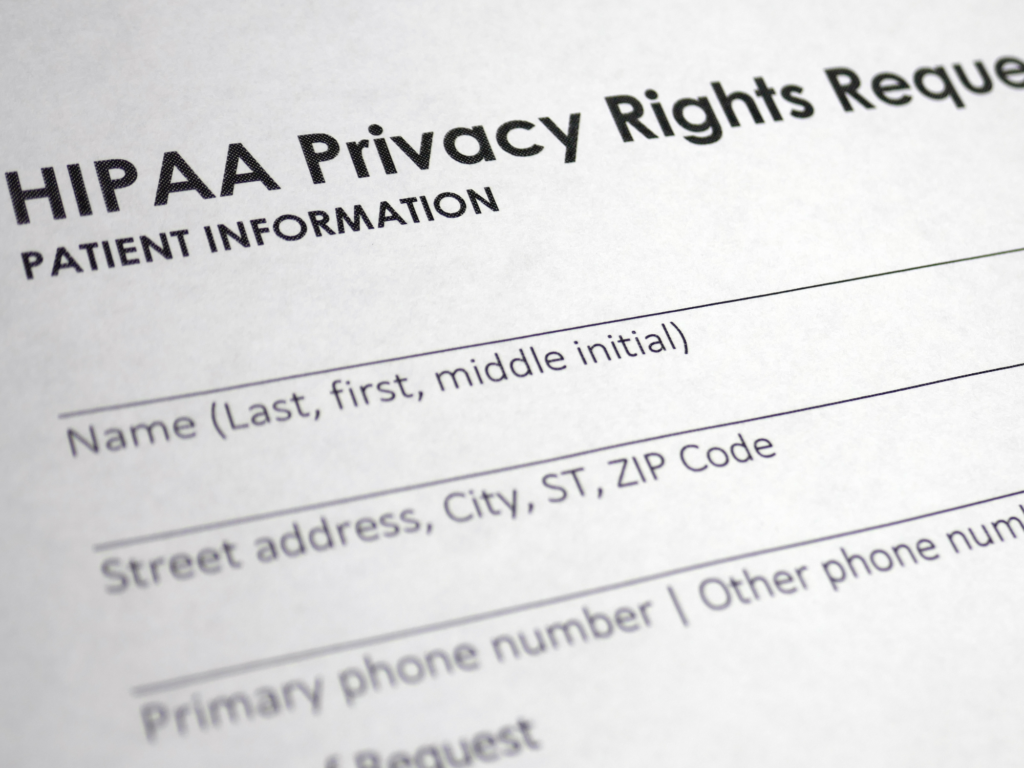
Patient Privacy and Compliance
With strict regulations such as HIPAA in the U.S. and GDPR in Europe, healthcare marketers must prioritize patient privacy. Marketing strategies should ensure that patient data is kept confidential and used responsibly.
- Tip: Ensure your digital marketing team and platforms are HIPAA-compliant. Use encrypted tools for communication, email marketing, and data collection to protect patient information.
Note: HIPAA stands for the Health Insurance Portability and Accountability Act. It is a U.S. federal law passed in 1996 with the primary goal of protecting sensitive patient health information from being disclosed without the patient’s consent or knowledge.
Building Trust in a Digital Age
Misinformation in healthcare is rampant, and patients are increasingly wary of where they get their information. Healthcare marketers need to ensure that their content is credible, fact-checked, and provides real value.
- Tip: Partner with medical professionals and subject matter experts when creating content to ensure accuracy. Cite trusted sources like the CDC, Mayo Clinic, or the WHO to bolster credibility.
Conclusion
The healthcare industry is increasingly moving online, and a strong digital marketing strategy is key to staying competitive and relevant.
By focusing on patient-centric digital marketing efforts, healthcare brands can not only improve patient engagement but also build trust and loyalty in a competitive healthcare landscape. Digital marketing allows healthcare providers to connect with patients on a deeper level, providing the information, services, and experiences they seek in an accessible, personalized way.
Healthcare is not just about treating patients; it’s about engaging them with the right information, at the right time, through the right channels. By leveraging digital marketing strategies, healthcare providers can ensure they remain at the forefront of patient care in this digital age, delivering not just treatments but holistic patient experiences that drive better health outcomes and patient satisfaction.
Ultimately, digital marketing is not just a tool for promoting services—it’s a bridge to stronger patient relationships and a brighter future for healthcare.


